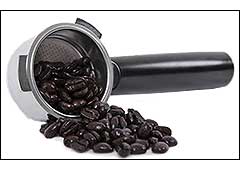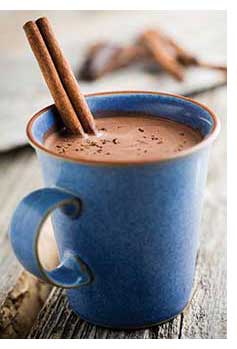Beverages – coffee trends
Coffee has been a source of good profits for caterers for many years, but with increasing pressures on costs some brands are cutting back on quality. This could be a risky strategy, says Ian Boughton
It has been an extremely exciting year in the world of hot beverages. It will very likely be even more exciting in 2013, as caterers have to battle an increasingly problematic balance between the price of good coffee and the quality expectations of their customers.
It is widely believed that the real top-quality gourmet coffee business will remain the province of the specialist coffee shops, who are willing to pay a good price for the best beans, and are equally willing to hold out for the best selling price in the cup.
"Consumers are increasingly seeking value as well as quality, which is a difficult juggling act for the service provider," says Alice Rendle of Edgcumbes Coffee in Arundel, a supplier to hotels and restaurants.
"We believe that the way to cope is to clearly differentiate and be very clear about the 
proposition you want to offer - bespoke or value."
The situation was first predicted over a year ago by one of the UK's most notable importers of green beans, Stephen Hurst of Mercanta. It was Hurst who warned that the volatility of coffee pricing would cause what he politely termed the "adjustment" of certain big-brand coffee blends - that is, as the price of the more desirable Arabica bean soared, certain roasters would turn to the cheaper and rougher robusta bean.
"Last year the Arabica prices doubled, and the arbitrage (the spread between the Arabica and robusta price) had never been so wide," 
he reports. "We now hear that the recipes are indeed changing, and robusta use is increasing. The big brands feed more and more robusta into their blends slowly over time, 
and because consumers are buying a brand, not buying taste, they get away with it.
"But the more obvious the taste difference becomes, the more likely the customer will say 'This coffee really is not any good, I'm going elsewhere'.
"So I see an increasing trend in the theory of Get Big or Get Niche."
He is far from alone in this view. At Marco Beverage Systems, a significant supplier of what the catering trade still thinks of as water boilers, but which now involve batch brewers with increasingly sophisticated features in terms of control and adjustment, managing director Drewry Pearson has seen the same thing.
"In mainstream catering, I have it said to me that coffee is all about price and because of this, we now see more robusta appearing in filter coffee, where it never was before."
It may be no coincidence that he also sees a move towards the newer kind of batch brewers which are more programmable. These, he observes tactfully, offer an operator the best chance to produce an acceptable result from an average coffee.
The biggest trend in machines is expected to be of the fully-automatic self-serve kind pioneered by Coffee Nation (now Costa Express) in motorway service areas - the consumers serve themselves and pay at the till. Starbucks is developing the concept, McDonald's has spoken of the same, and Nescafé is introducing its Milano Lounge concept.
Martin Thorpe, head of beverage solutions at Nestlé, suggests that 290 million coffee sales are lost each year because a convenient point of sale is not available for consumers who want coffee wherever and whenever.
The beverage development of this, it is now suggested, will be pop-up coffee bars and juice bars inside hotels at times and places where beverages would not previously have been offered.
"We may also see an increase in easy-to-use, table-top capsule hot beverage systems in hotel rooms, or in pubs looking to serve barista-quality coffee at the touch of a button," agrees the Kenco brand.
Although automatic machine makers now claim drink standards comparable to barista-made coffee, one known problem remains - economy on ingredients is giving some bizarre results.
"The automatic bean-to-cup market, and the one-touch machine, is booming - even though the standard of some of them is appalling," Pearson remarks. "I now see a continuance of the huge market opening up for bean-to-cup machines in convenience stores… maybe with questionable coffee inside them! It could all be improved by putting some decent coffee in."
FILTER COFFEE… THE RIGHT CHOICE FOR CATERERS?
One distinct trend is the progress of good-quality filter coffee in catering situations. This is good news for several reasons - it is easier to handle, and the coffee itself can be better, because filter coffee allows for the use of the more delicate beans that are ruined by espresso brewing. It has been the biggest trend of all in the hip coffee shops, but the potential in hotels and restaurants is genuinely exciting.
"Filter coffee will continue to have its day," says Barry Kither, marketing director at Lavazza. "Not necessarily the clever stuff you get in the top coffee houses, but good filter coffee with milk, and I do predict that pubs will take this up.
We are not talking about stewed-on-a-hotplate coffee - we are saying that by taking a little care and doing it properly, you will now get a very good bang for your buck. "We convinced Pret A Manger of this argument years ago - and they've never looked back."
The rise in filter coffee consumption has been led by the large coffee chains, who use top-notch equipment to brew it precisely, confirms Peter James, the artisan roaster of James Gourmet Coffee. "Their standard should send chills down the spines of everyone else selling brewed coffee. Be warned - this has started!"
It can be usefully translated to the hotel room situation, suggests Nicola Pearson at Cafedirect. "The Lipstick Effect continues, in that consumers refuse to trade down! This is helping overcome price point issues."
The trend for better coffee description on menus will continue, but with some differences, she adds. "The current trend is for higher-strength coffee - data shows that strengths four, five and six (according to the grading system demanded by the supermarkets) are growing, and three, formerly the top seller, is growing at the lowest rate.
"Consumers will increasingly refer to tasting notes and provenance. Origin is now often highlighted on menus at coffee shops, and this will feed through elsewhere as consumers shift from buying on strength to a desire to buy by origin."
PREDICTED TRENDS FOR 2013
â- Beverage operators will have to achieve the balance between the consumers' demand for high quality and their own desire for cost savings.
â- Pop-up self-service coffee points, as distinct from vending machines, will appear in vast numbers.
â- The demand for water filtration systems as a contributor to both drink quality and machine longevity, will continue to rise.
â- Premium hot chocolate may become the biggest-performing drink.
HOT CHOCOLATE - A MASSIVE OPPORTUNITY FOR FUTURE GROWTH?
Several commentators see continuing growth in 
quality hot chocolate. In specialist coffee shops, the 
use of single-origin chocolate drinks, as pioneered by the relatively-new Kokoa Collection company, have 
seen growth - at LJ's coffee house in Soho, one customer was so intrigued by the varieties that he 
tasted them all, spending £15 on hot chocolate within half an hour.
"There is a massive opportunity for further growth in premium hot chocolate," says Cafedirect. "Hot chocolate is known to mirror the confectionery market in retail. So far we haven't seen the beverage equivalent of the growth in premium-end retail chocolate products, but this will be a massive trend."
Hot chocolate will continue to emerge as a standard choice beside coffee and tea, observes Grace Keenan, brand manager for the DaVinci flavoured syrup range used in many coffee-houses. "It is no longer thought of as a treat, and is becoming more prevalent in the hot beverage market. Variation will become key - as hot chocolate can be combined with other flavours, options like chocolatey orange or white hot chocolate will become more familiar."
The predicted pattern in all hot beverages is that, where greater interest is being taken, the best profits come. This can be seen at the top, says Jeffrey Young of Allegra Strategies, the research house which specialises in the coffee business.
"Even many starred restaurants and classy hotels who pride themselves on their food and atmosphere see coffee as an afterthought," he explains.
Luckily, René Redzepi, the owner of Noma Restaurant in Denmark (the World's best restaurant, 2012) recently said that this was going to change at his restaurant in a big way.
"Other restaurants will find they cannot afford to ignore the artisan coffee revolution that has changed consumer expectations upwards," Young adds.
The trend is clearly for those who are making an effort with coffee to do best from it, warns Barry Kither, marketing director at Lavazza. "We can certainly predict pressure on those who have just been getting away with it. We have already had to say, respectfully, to some clients: if you want to charge £5 for an espresso, then you're going to have to do it properly!'









